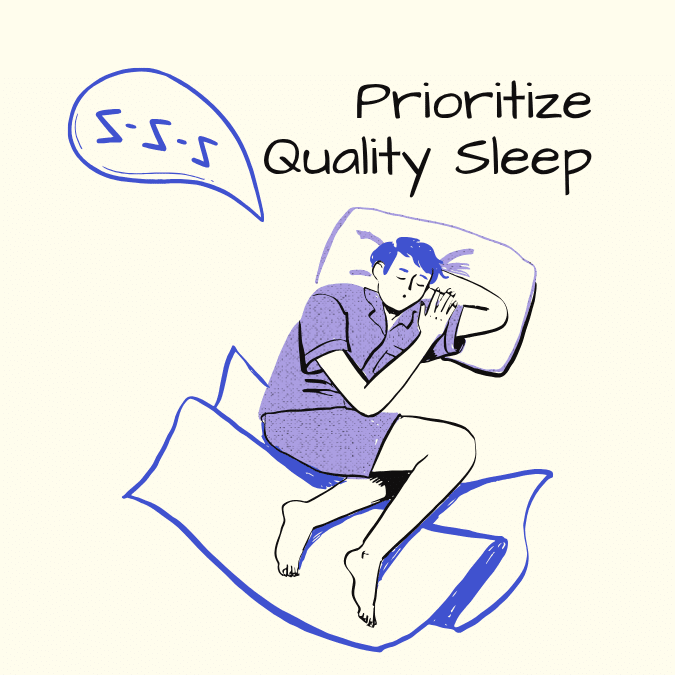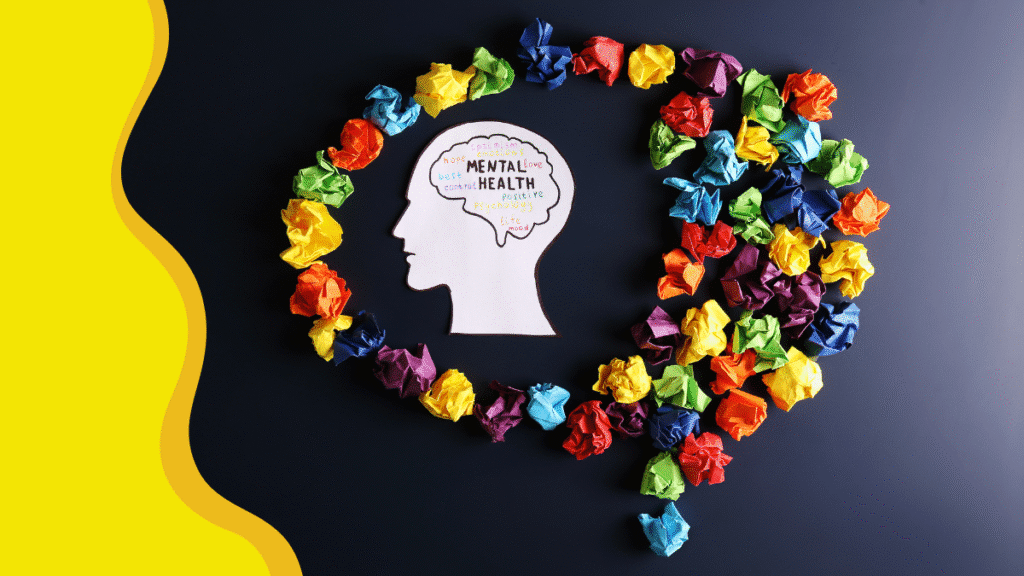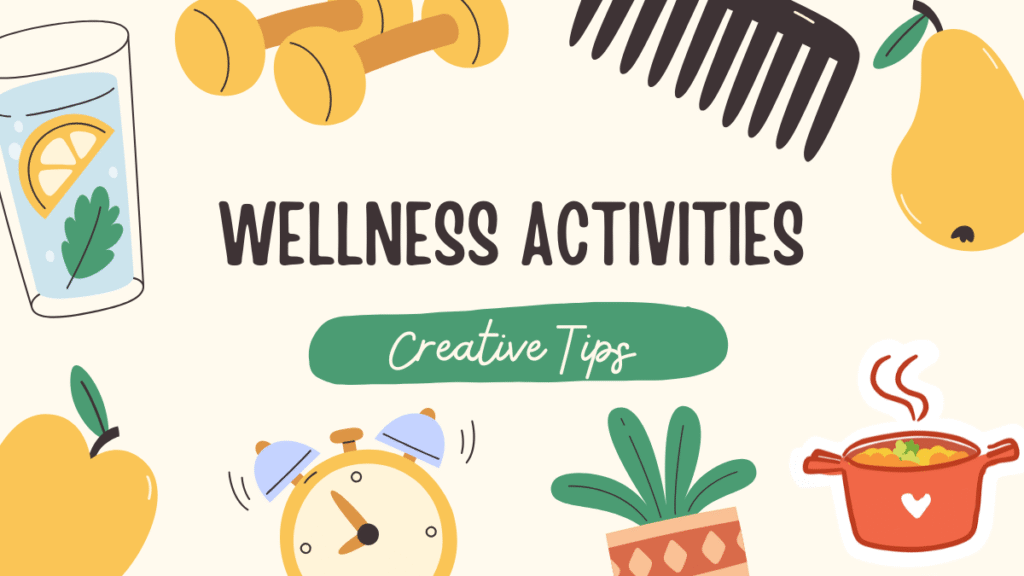The health of the mind is as important as our physical health. It influences how we think, feel and behave. Good mental health is necessary for a fulfilling life.
Today, in our fast-paced society as we all know – stress and anxiety are rampant. They also can be taxing for our mental health. But it can be managed and improved.
Small adjustments to daily habits lead to big differences. These adjustments may allow you to feel more stable and in charge. Mental health tips are useful for everyone. If you’re struggling or simply trying to stay well, here’s some advice. The first step is to say mental health is important. It can remind us that it pays to care for our minds.
This manual will offer useful tips to all. From coping with stress to enhancing resilience, there are nuggets here to find helpful.
Remember: Mental health is a journey. It’s a series of small, daily efforts.
Mental Health: Why It Matters, and How to Get Results
There is nothing we do that hasn’t been affected by mental health. It influences choice, feelings and identity. Taking care of your mental health is the foundation to wellness.
Mental health is frequently a taboo subject. This stigma leaves ale to many unable to seek help, or even admit things are not quite right. Breaking down this barrier is possible through mental health literacy.
Our emotional health affects how we deal with stress and cope with adversity. Sound mental health gives us the ability to respond to stresses and overcome difficult times. It helps us bounce back from defeats faster.
Mental health is related to physical health. Problems like long-term stress can cause physical illness. A sound mind leads to a healthier and fitter body.
Here are some reasons why mental health is so important:
- It influences overall well-being.
- It sculpts relationships and social ties.
- It’s linked to physical health.
- It determines how we respond to stress.
The first step is acknowledging how important mental health is. We need to recognize how it plays out in our lives day-to-day. In that way, we are enabled to alter behaviors for the better and search help when we need it.
Top 10 Mental Health Tips for Good
Everyone should keep mental health in mind as a priority. Maintaining it involves several actions. They are simple and powerful acts.
Begin by developing habits that are conducive to mental health. Maintaining such habits helps you lead a well-balanced lifestyle. Here are few mental health tips to keep your mind in check.
1. Stay Physically Active
Moving the body directly impacts the brain and our overall state of mind. It releases endorphins, which improve the mood. Exercise also reduces stress.
Even very brief physical activities such as a few minutes of movement appear to produce benefits. It’s good for the faculties and limbic structure. It’s all about having a daily regimen and staying physically active.
- Comprises physical activity such as walking, jogging or yoga.
- Engages in at least 30 minutes of activity a day.
- Promotes moving whenever and however you can, even if it’s just extending a limb.
Exercise is a mental health powerhouse in its own right. It also boosts confidence and reduces anxiety. That’s why it’s so important to stay physically active.
2. Eat a Balanced Diet
A healthy mental diet is important too. We are what we eat in every sense of the phrase. A range of food is better than none.
Eat plenty of fruits, vegetables and whole grains. It helps support brain function and mood. Stay away from too much sugar and junk.
- Incorporates fruits and vegetables.
- Opts for lean proteins.
- Limits processed foods and sweets.
A sound diet feeds the mind. It affects your energy and power of concentration. One way to improve mental health is to make sure we eat well.
3. Prioritize Quality Sleep

Good sleep is vital for your mental health. Sleep affects mood and decision-making. Lack of sleep can cause frustration and tension.
Try to get 7-9 hours of sleep a night. Create a bedtime ritual to sleep better. This makes sure the mind gets that rejuvenating rest.
- Establishes a regular sleep schedule.
- Limits screen time before bed.
- Creates a relaxing bedtime ritual.
Quality sleep nurtures the mind. It provides a means to escape daily stress. Rest is key when considering it’s mental health.
4. Practice Mindfulness and Meditation
Mindful and meditating relax the mind. They enhance focus, and diminish stress. Repeating them on regular basis is good for mental health.
Meditation is being in the moment. It’s helpful for racing thoughts and anxiety. The cult of mindfulness Anywhere, anytime.
- Practices breathing techniques.
- Involves guided meditation or apps.
- Promotes awareness of the present.
Mindfulness and meditation are machetes to your mental jungle. They encourage emotional stability. They boost mental health when we weave them into our everyday lives.
5. Build and Maintain Social Connections
Human interactions are crucial for the emotional well being. They are the ones who make it easier for us to cope with pressure and overcome adversity. Maintaining relationships is essential.
Regularly make contact with friends and family. Join organizations or professional groups. These are helpful things in forming a network.
- Contacts loved ones frequently.
- Joins clubs or social groups.
- Invests time in relationship building.
Social connections enrich life. They provide emotional backing. Prioritizing relationships bolsters mental health.
6. Have Realistic Targets and Reward Achievements
Goals provide to purpose and direction. Setting achievable goals promotes motivation. Celebrating small wins enhances motivation.
Construct goals in the short run, reap success in long run. Monitor your successes and celebrate them. It’s a way to gain confidence and mental toughness.
- Establishes short and long-term goals.
- Acknowledges and celebrates small successes.
- Tracks progress regularly.
Goals shape our life’s path. They help keep our feet on the ground and our eyes on the prize. Acknowledging advancements keeps you in a good mood.
7. Limit Alcohol and Avoid Drugs
But drugs and alcohol can have mental health side effects. They change mood and cognition. Limiting these substances is crucial.
Addiction and mental health problems are the result of misuse. And you certainly should be careful with intake. Explore healthier ways to cope.
- Limits alcohol consumption.
- Avoids recreational drug use.
- Seeks healthy stress-relievers.
Avoiding substances promotes clarity. It is what keeps my mind clear, level and healthy. This is critical for mental health.
8. Practice Gratitude and Positive Thinking
Gratefulness changes our focus from what is negative to what is positive. It cultivates contentment and happiness. Practicing gratitude enhances mental wellness.
When you think positively, it has a powerful effect on the way that everything seems hopeful. It lowers stress and increases problem-solving power. Foster gratitude and positivity daily.
- Keeps a gratitude journal.
- Practices daily affirmations.
- Focuses on positive experiences.
Gratitude and positivity transform thoughts. They create a resilient mindset. Doing them is good for our mental health over all.
9. Seek Professional Help When Needed
Asking for help is a sign of strength, not weakness. Professionals provide guidance and support. They guide people through mental health problems.
See a therapist, or counselor if need be. Check-ins also help prevent problems. Expert advice is about customizing solutions for your specific needs.
- Explores therapy or counseling options.
- Checks in frequently with mental health professionals.
- Reads and draws on mental health resources.
Professional help is empowering. It provides resources for improved mental health. It is smart and even helpful to get help.
10. Do What You Love And Seek Hobbies He lovesd to do? So much eding!
Participating in hobbies keeps you happy and helps to decrease stress. They are an escape from the everyday. Both are crucial to mental health.
Opt for pleasant, satisfying activities. These can be creative or recreational activities. Hobbies improve life satisfaction and mental equilibrium.
- Finds time for hobbies and interests.
- Experiments with new activities for the sake of joy.
- Balances work with leisure activities.
Hobbies enrich life. They offer relaxation and fulfillment. We develop a practice from doing them and mental wellness is a result of regular practice.
More Mental Health Advice for Your Everyday Life
Daily habits affect mental health. Making small changes to these habits may boost your mental well-being. Make small changes and see large progress over time. Remember, don’t give any space to Unhealthy Habits.
Consider implementing self-care routines. Self-care is the first step to rejuvenate our mind and body. Look for activities that help you find peace and joy.
- Move around during the day.
- Breathe — practice relaxation techniques to take the edge off nerves.
Reduce screen time, particularly on social media. Stress usually comes with the online territory. Boundaries are important to protect your mental space.
- Schedule daily screen-free time.
- Use apps to track and control usage.
Another important point is to connect with nature. The mind is soothed by nature. Even a short spell indoors can improve mood.
Develop coping strategies for stress. Good coping mitigates mental health pressures. Play around and see what is best for your system.
- Try journaling to process thoughts.
- Do something creative, such as drawing or playing music.
Finally, establish a structure to your day. Consistency in scheduling provides stability and predictability. Levey It can help balance various life areas.
- Develop a morning routine to kick-start your day on a positive note.
- Plan for some wind-down time at night.
These extra tips enhance quality of life. They promote a healthier state of mind. Continue to play around and see what works best for you.
Managing Stress: Techniques and Strategies
Stress, so it would seem, is a fact of life. We cannot wish it away, but we can control the impact of this disruption. Take some measures to mitigate the effects.
Begin by identifying stress triggers. Knowing such patterns can help you create a strategy in advance. The key to stress management is awareness!
Implement relaxation techniques. Such treatments can help relax both body and mind. Consider looking into options such as yoga and tai chi.
- Practice deep breathing exercises regularly.
- Bring progressive muscle relaxation into your regular repertoire.
Then of course there is time management. Having a structure to your day goes a long way in preventing one from feeling overwhelmed. Keep a good structure and order of your work in order to stay focused and clear.
- Chunk big projects into smaller steps that are achievable day by day.
- Utilize planners or technology like apps to help manage your time well.
Good lifestyle choices can also help decrease stress. Exercise, good sleep and healthy eating cultivate resilience. They establish a solid platform for handling stress.
Seek social support when needed. It might help to talk about the fear with friends or family. And do keep in mind, a problem shared is often a problem halved.
- Join supportive communities or groups.
- Bully proofing activities that promote positive encounters.
This is a two-in-one stress reliever. Adjust to your own taste. Eventually, regular practice makes the mind increasingly hard to disturb.
Building Resilience and Coping Skills
Resilience is the capacity to bounce back after difficult experiences. It is crucial to mental health. Resilience Building There are a number of ways to build resilience.
Begin with an attention toward your strengths. Everyone has unique abilities. Awareness and capitalization on these can increase self-esteem.
Nurture a positive mindset. Keeping morale up in difficult circumstances is crucial. It can make the obstacles appear more manageable. Gratitude can help build optimism.
How to improve your coping techniques By practicing intentionally. Play around with what works for you. Here are a few ways to try:
- Journaling: Put your thoughts and feelings in writing to process them, advises Mahalli.
- Meditation: This can silence the inner chatter and help with focus.
- Outlet for Creative Expression: Art or music can be a way of expressing yourself.
Resilience is also enhanced by having strong social support. Herald around those that inspire and motivate you to others. Their companionship can be a source of comfort and an investment in perspective in difficult times.
Don’t forget, cultivating resilience is a process and will take time. These steps will take you closer to a more resilient thinking.
Self-Compassion and Acceptance are What Matter
Self-compassion is about being good to yourself. It’s all about treating yourself the way you would a good friend. It may be good for mental hygiene and easy on self-criticism.
Accepting where you are is simply being where you are without judgment. It helps you to deal with tough emotions without fighting them. Perhaps acceptance can bring about growth and emotional fortitude.
Practicing self-compassion requires intention. Allow yourself to feel your feelings from the very beginning. That is not to be interpreted as an endorsement, but recognition.
Here are some simple tips to develop more self-compassion and acceptance:
- Be Awake: Notice what you are thinking about, but do not attach to any of it.
- Forgive: Forgive yourself for accidents, and forgive others.
- Develop Self-Kindness: Treat yourself with kindness and compassion, in the way you would speak with a friend.
Self-compassion fosters inner peace. It makes kids strong and gives them a positive sense of self. Coming to terms with yourself can result in long-term progress and improve mental health.
Recognizing When to Seek Help
You need to know when to ask for help. It’s natural to encounter some bumps along the way, but here are a few signs that professional support might be in order. The warning signs are stubbornly ignored because we are afraid to risk further complications.
Acknowledge enduring feelings of sadness or anxiety that never improve. Pay attention if the activities of daily life become a burden or if relationships are impacted. At this point, these may be signs that you should get some professional help.
Here are several signs that you might need help:
- Consistent low mood or irritability
- Withdrawal from social situations
- Difficulty concentrating or making decisions
Asking for help is a proactive decision. It shows strength and self-awareness. This action can result in better mental health and quality of life.
Frequently Asked Questions (FAQs)
What is the single most thing that I should be doing to improve my mental health?
Perhaps the most important first step is just recognizing that your mental health matters. For you: by acknowledging that it affects your day-to-day life, and then pushing for it to be a priority, changing what needs changing (or can be), and getting help. Looking at mental health as an accumulation of small day-to-day efforts is the secret to long-term wellness.
I’m very busy. What is the one best thing I can do?
Of all the multifaceted habits, staying physically active is one to focus on if you only have time for one. Endorphins canboost your mood and decrease levels of stress, even with just a brief walk. It has a direct effect on the brain, increases confidence and can decrease anxiety, so it is a very useful practice for modern life. You may also read How to Stay Fit: Effective Health Tips for Busy People
What is the connection between physical and emotional health?
Mental and physical health are inextricably linked, the article says. For instance, chronic stress can take its toll on the body in the form of disease. On the flip side, a balanced diet fuels your brain, which in turn affects energy levels and concentration, and good sleep is essential for mood and decision-making. Healthy mind, healthy body – this tends to be true.
When should I see a doctor?
If you can’t seem to deal, or if you start getting persistent feelings of sadness or anxiety that don’t get better, or if your current mental sitch makes everyday life and relationships difficult for a while – it might be time to see a mental health specialist. Particular symptoms include a continual low mood or irritability, withdrawal from social activities and difficulty focusing. Remember, asking for help is a sign of strength and self-awareness, not weakness.
Conclusion
Your Continuing Mental Health Path involves an ongoing negotiation not only with your deepest intuitive sense of purpose, value and meaning in life but also with whatever you determine are the best ways to allow yourself to realize these inner values, within the constraints imposed by pursuit of happiness.
Mental wellness is an ever evolving process and needs continuous care. It’s so important to understand that this journey looks different for everybody. There are no one-size-fits-all solutions.
Putting your mental health first is the key to living a well-rounded and satisfying life. Little things you do each day can add up to a lot over time. Consistent self-care routines are vital.
Be aware of whether your mind is tired and adjust accordingly. Accept the changes and ask for help when you need it. Keep in mind that mental health is a journey, not a destination.





